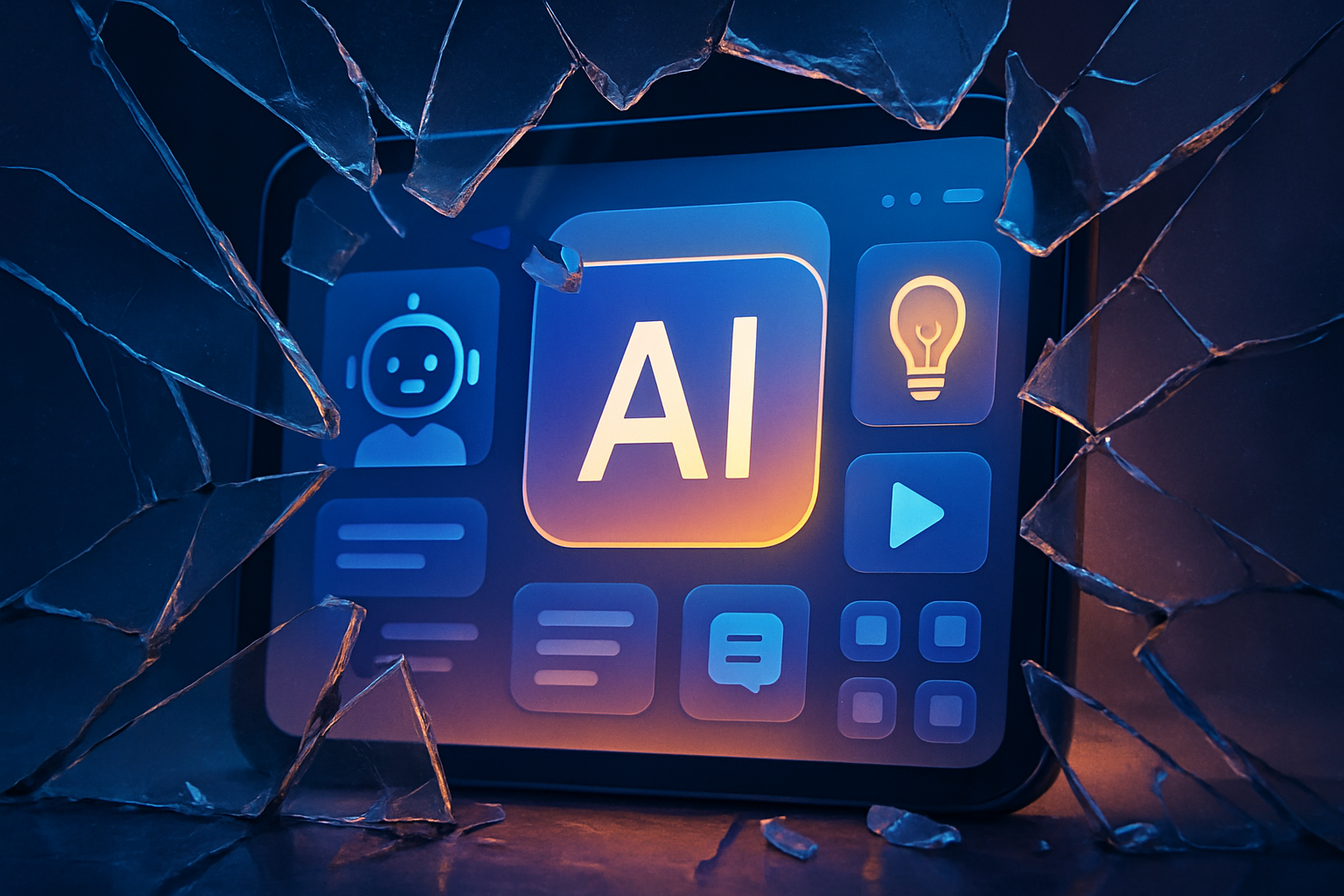Top 5 AI Myths Busted: The Truth About Artificial Intelligence
Debunking the top 5 AI myths. Discover the real impact of artificial intelligence and how it can benefit you, even as a beginner.

Unveiling the Reality: Top 5 AI Myths Debunked
Artificial Intelligence (AI) is rapidly transforming our world, sparking both excitement and apprehension. With so much buzz around AI, it's easy to get caught up in misconceptions. This guide clarifies common AI myths, replacing them with the actual truth, so you can approach this technology with informed optimism.
Myth #1: AI Will Replace All Human Jobs
This is perhaps the most prevalent fear. While AI will automate many tasks, it's unlikely to replace *all* human jobs. Instead, it will augment human capabilities, creating new roles and industries we can't even imagine yet. Think of AI as a powerful assistant, not a complete replacement. For example, AI can automate data entry and analysis, freeing up humans to focus on strategic thinking, creative problem-solving, and interpersonal interactions. In many cases, human oversight remains crucial for ethical considerations and nuanced decision-making.
Myth #2: AI is Always Right
AI is only as good as the data it's trained on. If the data is biased, incomplete, or inaccurate, the AI's output will reflect those flaws. This can lead to incorrect predictions, unfair outcomes, and even discriminatory practices. It's crucial to remember that AI is a tool, and like any tool, it requires careful calibration and monitoring. Human oversight is essential to identify and correct biases, ensuring AI is used responsibly and ethically.
Myth #3: AI is Too Complex for Beginners to Understand
While the underlying algorithms of AI can be complex, using AI tools doesn't require a PhD in computer science. Many platforms offer user-friendly interfaces and pre-built AI models that anyone can leverage. Tools like ChatGPT allow you to interact with AI using natural language, making it accessible to everyone. Similarly, platforms like Make.com empower you to automate tasks by integrating AI tools into your existing workflows without writing a single line of code. You can connect different AI services to streamline your work, analyze data, and improve your overall efficiency. Think of it like building with Lego bricks – each block is a different AI function, and you can easily snap them together to create powerful automations.
Myth #4: AI is a Futuristic Technology That's Not Relevant Today
AI is already deeply embedded in our daily lives. From personalized recommendations on Netflix to spam filters in your email, AI is constantly working behind the scenes. It's not a distant future; it's the present. Businesses are using AI to improve customer service, optimize marketing campaigns, and develop new products. Healthcare professionals are leveraging AI to diagnose diseases earlier and personalize treatments. Even artists are using AI to create stunning visuals and music. The opportunities are endless.
Myth #5: AI is Sentient and Will Become Self-Aware
Current AI is far from achieving sentience or self-awareness. It operates based on algorithms and data patterns, not consciousness. While AI can mimic human-like behavior, it doesn't possess genuine understanding or emotions. The concept of sentient AI is largely confined to science fiction. While research continues in the field of artificial general intelligence (AGI), which aims to create AI with human-level intelligence, it's still a long way off. For now, AI remains a tool, albeit a powerful one, controlled by humans.
Embrace the Reality of AI
By understanding the truth behind these common myths, you can approach AI with a more informed and realistic perspective. Embrace the power of AI to enhance your work, streamline your processes, and unlock new possibilities. Remember, AI is a tool to be used wisely, ethically, and responsibly. Explore the many practical applications and begin integrating AI into your personal and professional life today!
Frequently Asked Questions
Will AI really take my job?
While AI will automate many tasks, it's more likely to change the nature of your job than eliminate it entirely. Focus on developing skills that complement AI, like critical thinking, creativity, and communication.
How can a beginner use AI to automate tasks?
Platforms like Make.com offer user-friendly interfaces to connect various AI tools and automate workflows without needing to code. Start with simple automations and gradually explore more complex integrations.
Is AI difficult to learn for someone new to technology?
No! Many AI tools are designed to be accessible to beginners. Start with user-friendly platforms, online courses, and tutorials to build your understanding gradually.
What are the ethical concerns surrounding AI?
Key concerns include bias in data, job displacement, privacy violations, and the potential for misuse. Responsible AI development requires careful consideration of these issues.
Affiliate Disclosure: Some of the links on this site are affiliate links. I earn a small commission if you make a purchase through them—at no extra cost to you. Thank you for your support!